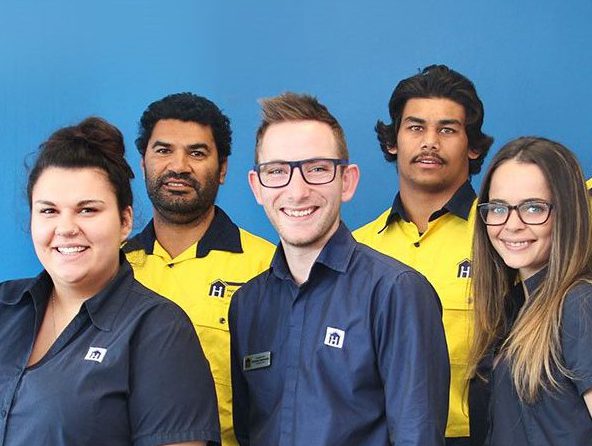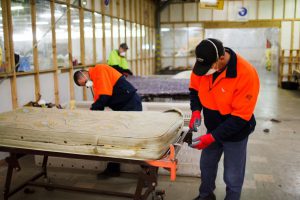
New paper finds ‘social procurement’ could enable local governments to achieve efficiencies in core service delivery while helping community enterprises realise development goals.
In a region like the Great Lakes in NSW, which has markedly higher rates of unemployment and part-time work and lower youth workforce participation than the state average, an organisation that provides jobs for local people experiencing disadvantage has been making a tangible difference.
Community Resources, a not-for-profit community development organisation, has established social enterprises that employed more than 280 people in 2017 – many of them Aboriginal people experiencing disadvantage, the long-term unemployed, people experiencing homelessness, those living with a disability and ex-prisoners.
Crucially, through a relationship with its local government, Mid-Coast Council, the organisation is contracted to deliver a range of services in community care and waste management.
It’s this council business that has helped Community Resources to grow into a national organisation with a turnover of $15 million in June 2017, of which $11 million went into wages focused in high unemployment areas such as Forster Tuncurry, where 140 staff are currently employed. It’s also exploring new ventures in areas experiencing similar disadvantage, such as the Illawarra of NSW.
Over 80 per cent of the organisation’s income was generated by its community enterprises that include Resource Recovery Australia, which operates re-use shops, transfer stations and sustainability workshops in partnership with councils; Helping Hands, a provider of respite and domestic assistance for seniors; and Soft Landing, which diverts waste mattresses from landfill across NSW, the ACT, Western Australia and Victoria.

The organisation is featured as a case study illustrating the benefits of partnerships between social enterprises and local governments in a forthcoming book, Social Capital and Enterprise in the Modern State.
“There are more and more social enterprises appearing in Australia, and many of them are starting to establish relationships with local government, but not as much as they could,” Catherine Hastings, the chapter’s co-author and a PhD candidate in the sociology department of Macquarie University tells Government News.
Some of the benefits of these partnerships include greater community consultation and participation, decentralised decision-making and local economic and social development.
Barriers to partnerships

But Ms Hasting’s analysis also highlights the barriers preventing more social enterprises from building relationships with local government. These can include a lack of awareness within councils of what these organisations can do, concerns about governance and a lack of trust.
“Experience at the national level has demonstrated how hard it is for new or smaller social enterprises to gain a foothold with councils,” said Ms Hastings, a former research officer in the Centre for Local Government at UTS.
A key challenge for social enterprises is to effectively convey how they can support local governments’ core operational objectives while also bringing about positive social outcomes.
In an era when local governments must deliver on an ever-expanding list of functions, Ms Hastings advocates for councils to consider social enterprises as another potential partner in service delivery.
Delivering core services and local development
“The Community Resources example demonstrates that a council can support a social enterprise to capitalise on business opportunities – in this case, provision of waste management and care for an ageing population – in order to realise community development goals, like jobs for disadvantaged people.
“There’s that parallel for local government in terms of core service delivery and community development; this can be a way of doing both at the same time,” she said.
If the value of social enterprises’ knowledge and connection to community was better understood by local government, and the capacity to jointly deliver solutions to local social and economic problems was subsequently embraced, then social procurement could become a more prevalent form of “public value creation” for councils, Ms Hastings argued.
Comment below to have your say on this story.
If you have a news story or tip-off, get in touch at editorial@governmentnews.com.au.
Sign up to the Government News newsletter.
